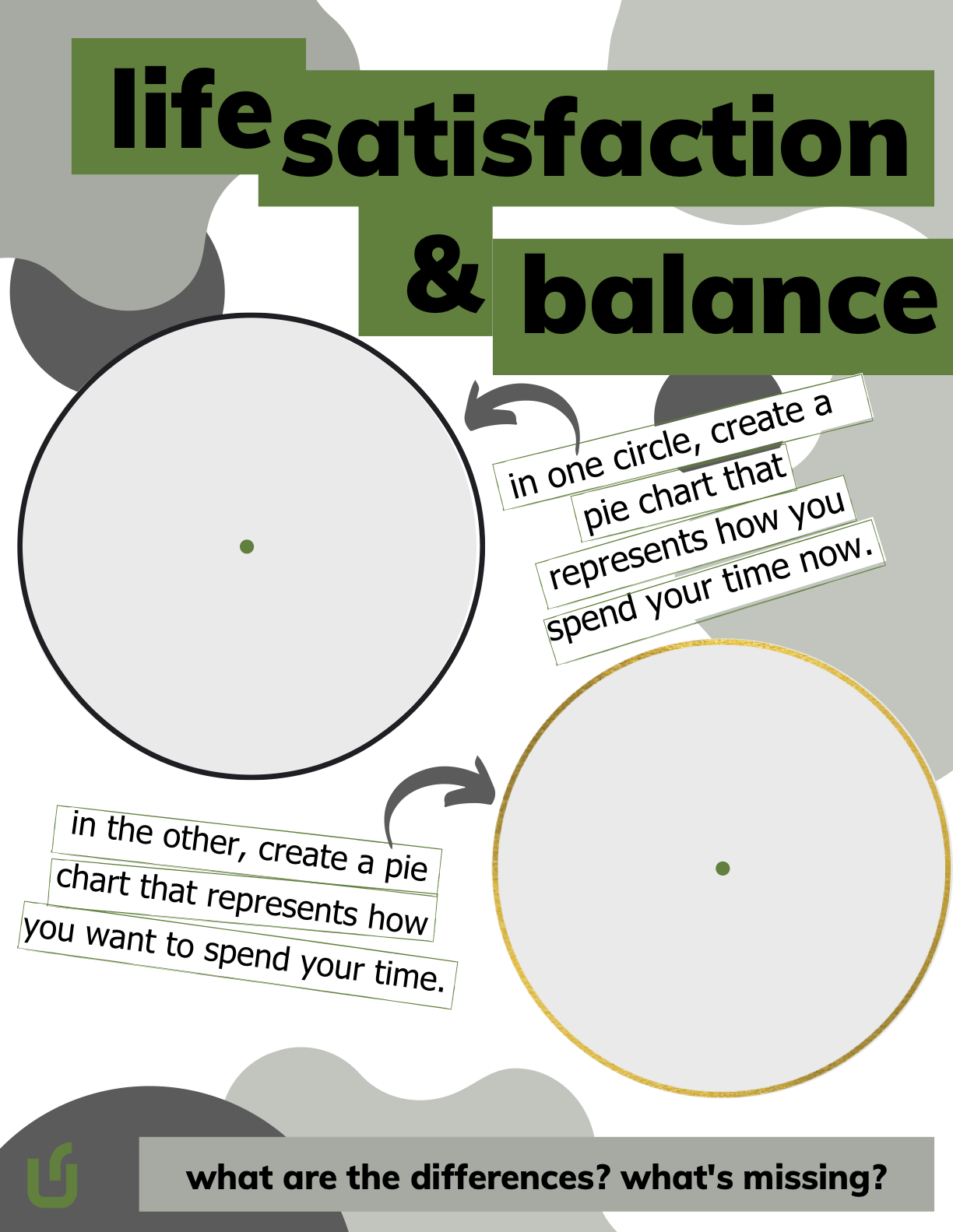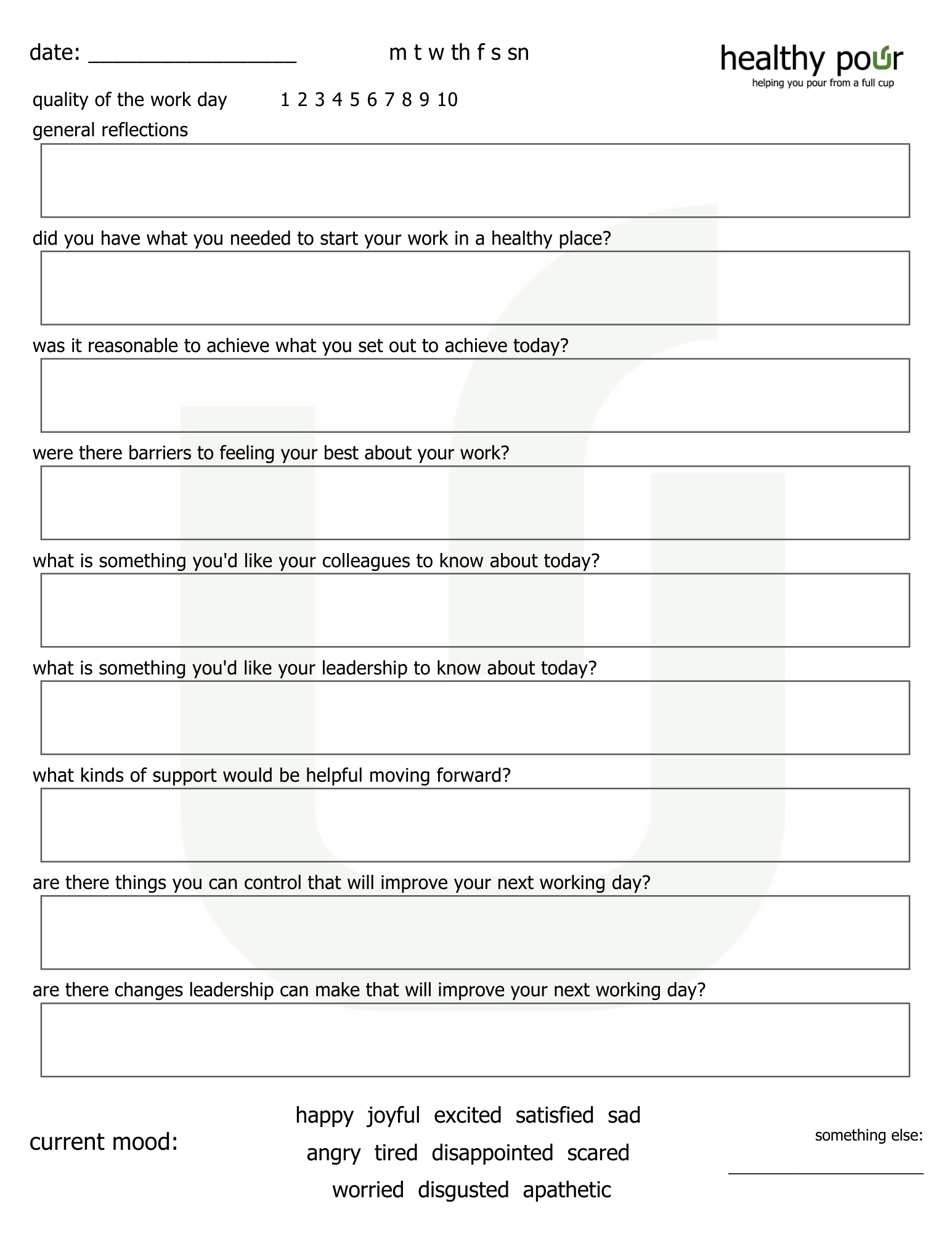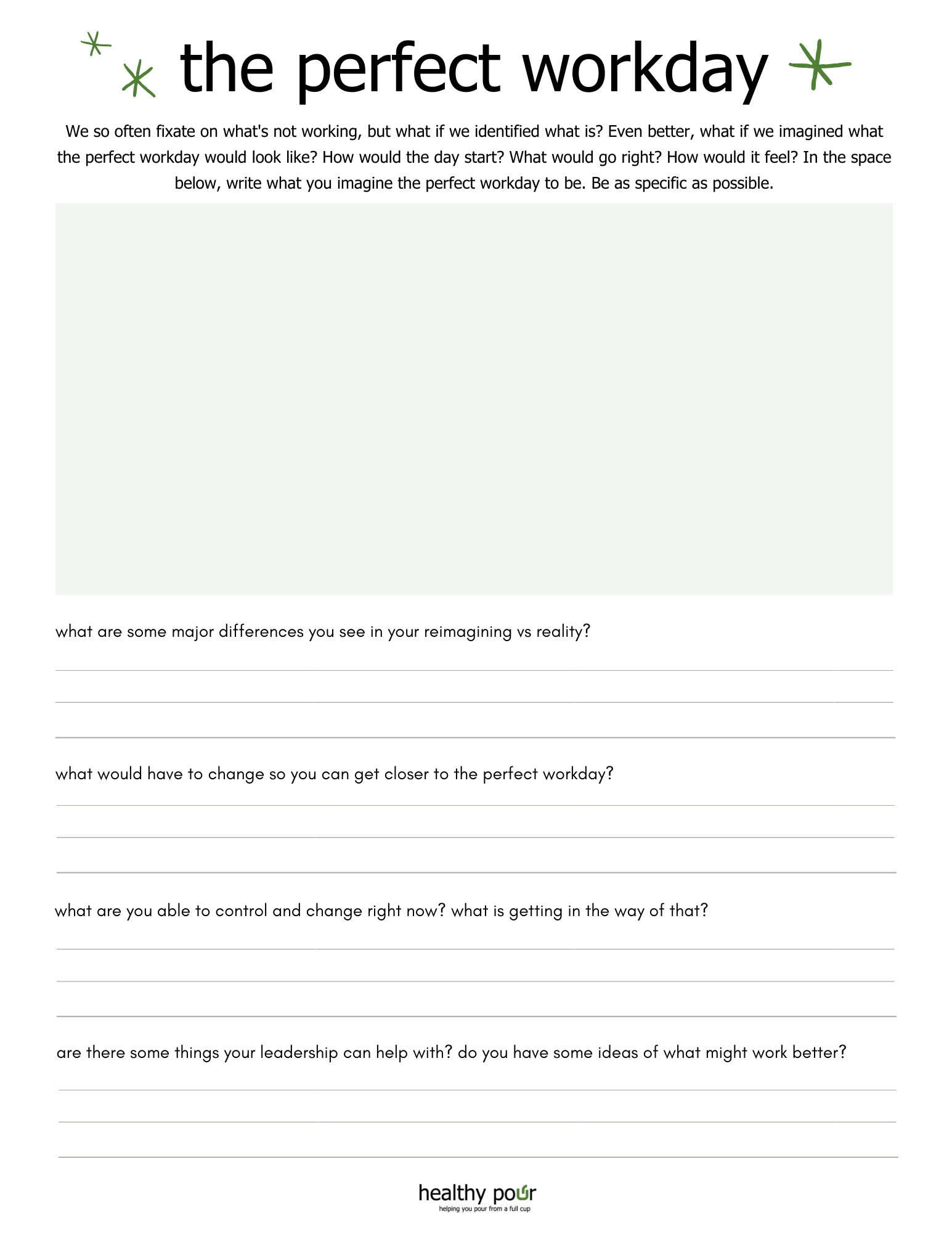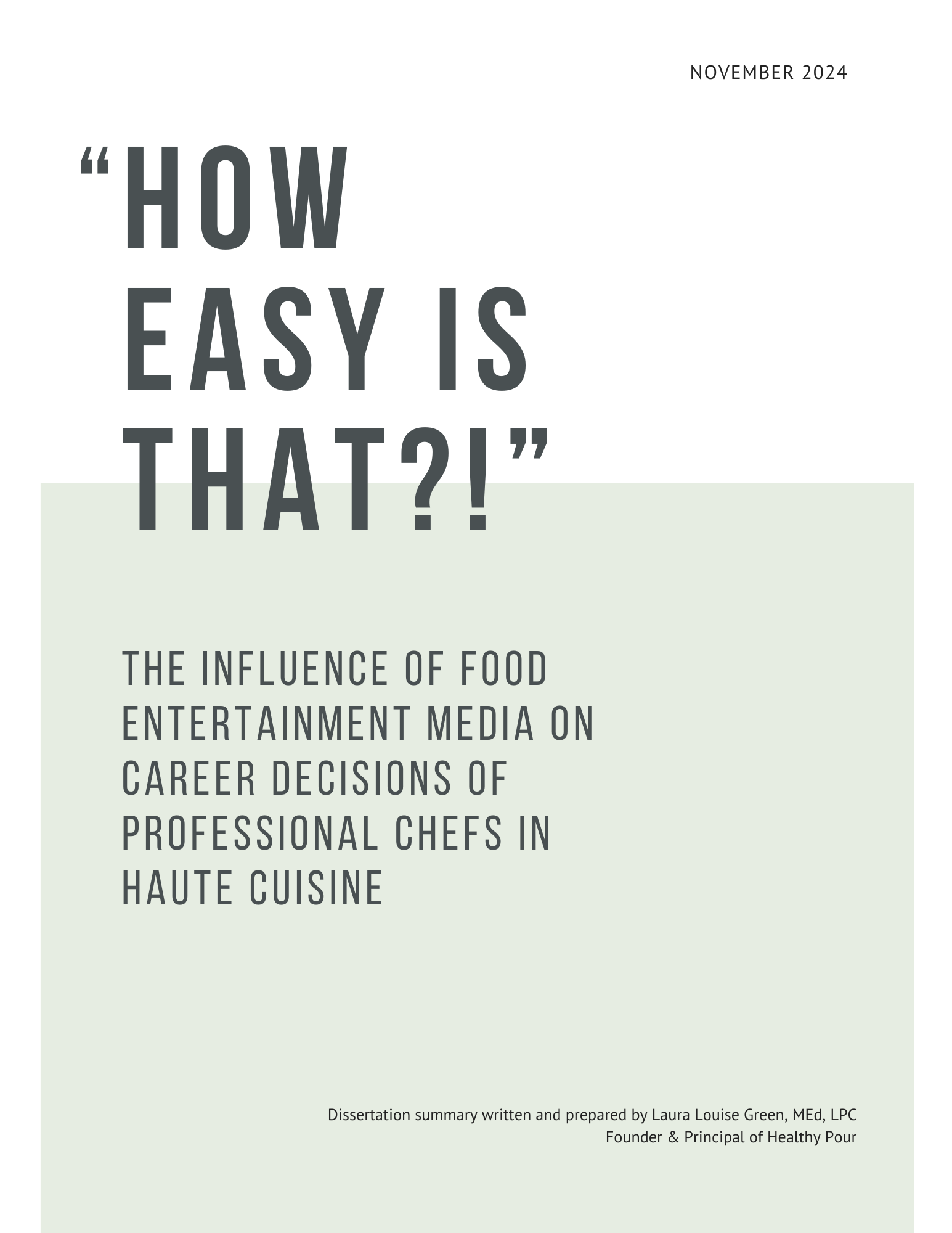
These are free, downloadable worksheets you can use and share to better understand yourself, work through problems, identify areas to change, and process your experiences—both in your life and at work.
If you’d like to donate (but no pressure!) you can do it here. It will help us continue offering free resources and content like this, which is cool. But for real, no pressure. None.
Download away.
worksheets for work/life balance, satisfaction, and identity
-

Life Satisfaction Exercise pt 1
It’s too east to let work take over your life—especially when you love what you do. This exercise will help to visualize how you use your time and with the help of included thought prompts, think about how you can find more balance in your life.
-

Daily Worksheet for Life Balance
For those of us who love to do lists but always feel crummy when we don’t finish them, this is the sheet for you. It includes limited and focused to do space, micro-journaling, life balance visualization for time and mental space, and trackers for emotional and physical nourishment. This can be used daily, or when finding balance is particularly challenging.
-

Life Satisfaction Exercise pt 2
An accompaniment to the Life Satisfaction Exercise, this sheet give space to further assess how satisfied you are in different areas of your life. When used after Pt 1, it creates a clearer picture of the aspects of your life that might require more attention. Includes thought prompts for further processing and discovery.
-

Identity Building Worksheet
Our work has a sneaky way of taking over our time, resources, and even our identities. Especially in hospitality or the arts, we whittle our identities down to simply bartender or chef or brand ambassador or actor, when we’re so much more than that. This exercise will help you to explore all that you are beyond your job.
worksheets for rethinking, reimagining, and problem-solving at work
-

Healthy Pour Workday Processing Sheet
This worksheet can be used to not only process the challenges and wins of the day, but is a wonderful tool to communicate feedback and needs to management. Use it as part of a checkout SOP or keep a journal for yourself to build emotional intelligence and coping skills. So many options; the sky is the limit.
-

The Perfect Workday Exercise
We often get too deep in the woods to see the trees, and sometimes it helps to zoom out a bit. At work this means we can get accustomed to challenges that are unnecessary. This is a powerful feedback tool, but also helps personnel to disrupt their day to day challenges by asking: what if everything goes right?
-

Intervention Development Guide
When addressing issues in the workplace, we need to look at the problem from multiple angles, which means they need to be addressed from multiple angles as well. This worksheet helps to approach a problem from individual, organizational, training, and community interventions.
-

Task Delegation Inventory Worksheet
A solid task delegation plan benefits everyone and builds trust: leaders have a bit less on their plate while their team is able to develop skills and grow within their roles. This inventory worksheet ensures people are set up for success without overwhelming anyone with tasks they cannot complete.
worksheets for building our emotional skills
-

Emotional Processing Worksheet
Why are we so great at identifying and articulating flavors and tasting notes, but can’t do the same with our emotions? This worksheet is formatted like a tasting grid for you to work through. Remember, building emotional intelligence is a skill that you can build! This worksheet will help you.
-

Mindful Drinking Worksheet
For most people—especially those working in the hospitality, food, & drinks industry—their relationship with alcohol is multifaceted and complicated. This worksheet is useful when you’re hoping to untangle the “whys” around how you engage with your relationship with alcohol.
-

Coping with Grief
Grief is an overwhelming experience, but especially challenging for those who utilize emotional labor in their careers. This guide helps to better understand grief and how to healthily move through and cope.
inforgraphics & one sheeters
-

Toxic Workspaces at a Glance
This is an accompanying worksheets for the Terms of Service Podcast Takeover (Dec 23, 2022) that details the traits of a toxic workspace and their antidotes. This is based on the work of Charles & Donald Sull.
Reports, Case Studies, and White Pages
-

"How Easy is That!?": The influence of food entertainment media on career decisions of professional chefs in haute cuisine
This is a reader-friendly version of Laura Louise Green’s organizational psychology dissertation. It explores culinary professionals’ career decisions, how food media influences those decisions, and how toxic workplaces indoctrinate individuals into abusive cultures.
-

Workplace Innovation Trends Report: 2025
Our annual report is out! In the midst of some chaotic times in the workplace, these are the strategies and approaches the most innovative and thoughtful organizations are implementing. You might be doing much of this already! What else can you try?
Want a full copy of the 2025 Workplace Innovation Trends Report?
That’s great because we want to send it to you! Fill out your information here, and you should see it in your inbox shortly!
